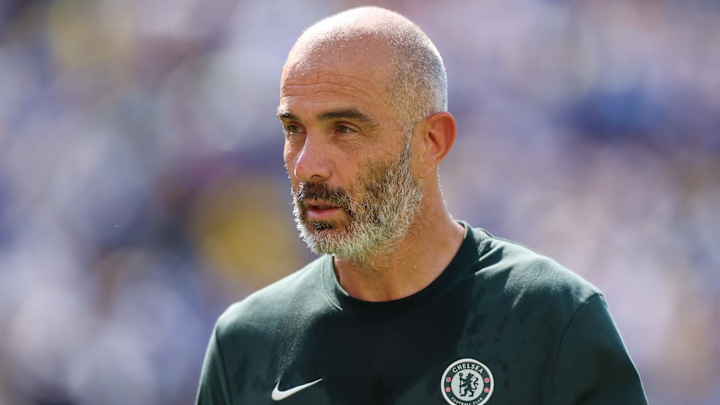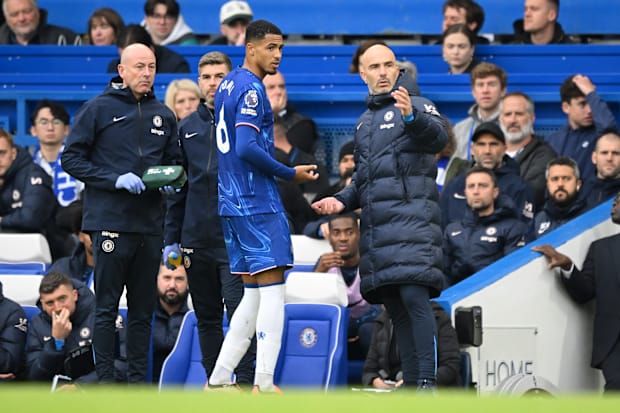Chelsea's Transfer Window Stumble Puts Enzo Maresca in the Hot Seat Despite Unfair Expectations

"This remains a top priority for me," Enzo Maresca stated regarding the acquisition of a new central defender following Levi Colwill's devastating ACL injury.
This position was reiterated when Liam Delap suffered an injury against Fulham: "With just two strikers available, that number suffices, but when one faces weeks on the sidelines, it becomes insufficient."
Maresca made no attempt to conceal that the club disagreed with his wish to return to the transfer market for squad reinforcement amid injuries, candidly acknowledging that recruitment officials preferred he seek solutions from within, though supporters maintained optimism that the window's final days might deliver a new addition. Nicolas Jackson's profitable loan move to Bayern Munich, featuring a mandatory purchase clause valued at £56.2 million ($76.1 million), seemed to create an opportunity.
However, Chelsea's transfer executives remained steadfast. No marquee replacement would arrive for Jackson, only the return of inexperienced Marc Guiu from Sunderland to help fill the void.
The final day brought no new central defender either. Despite Maresca's urgent appeals to secure a player capable of covering for Colwill, whose central defensive role holds particular significance in the Blues' system, the manager must now seek internal answers within a squad he has publicly acknowledged lacks the appropriate player profiles.
Instead, the sole new arrival welcoming Chelsea supporters as the window concluded was Brighton and Hove Albion loanee Facundo Buonanotte, who has transitioned from a substitute role with relegated Ipswich Town to becoming the only natural backup for Cole Palmer, remarkably, within mere months.
Buonanotte represents a characteristic Chelsea acquisition—promising potential and future excitement—yet he arrives in a squad position demanding immediate impact. Palmer currently faces injury concerns, and the recent 2–0 victory over Fulham was, scoreline aside, a genuinely disappointing display brightened solely by João Pedro's contribution and the resurgence of an already cautioned Moisés Caicedo.
Reducing the burden on Palmer's capabilities seemed recognized as essential earlier this summer when Xavi Simons became an increasingly probable signing. A transfer for the Dutch midfielder appeared readily available to Chelsea for months, yet for undisclosed reasons, the Blues chose not to submit a formal offer, enabling Tottenham Hotspur to intervene and complete the deal.
Only future events will determine whether overlooking Simons for one season of Buonanotte proved wise, with Maresca now responsible for resolving arguably his three most pressing squad concerns independently.
Such transfer choices can determine an entire campaign's direction. Admittedly, top teams and elite managers should handle these challenges, but this represents the pressure level now confronting a Chelsea team still generally considered several components away from genuine Premier League title contention.
Without question, Maresca has benefited from a recruitment department prepared to invest in the squad. Alongside Pedro and Delap, Chelsea have invested heavily in Alejandro Garnacho, Jamie Gittens and Jorrel Hato this summer, while completing pre-arranged signings of Estêvão and Dário Essugo and welcoming back Andrey Santos from loan. Most Premier League managers can only imagine such generous financial backing from ownership, and suggesting he has been disadvantaged by another £200+ million investment would be inaccurate.

Regrettably, moments like these highlight Maresca's minimal recruitment involvement—something he has previously commended. The sporting directors have tackled their priorities while leaving Maresca's concerns unresolved.
The responsibility for defending these choices will rest with Maresca, who must confront inquiries about both tactical limitations and squad quality should circumstances deteriorate, despite his preferences being clearly expressed.
The international break arrives opportunely for Maresca, providing two weeks to work privately on addressing the obvious gaps in his squad before a Brentford visit returns him to unwanted scrutiny.
